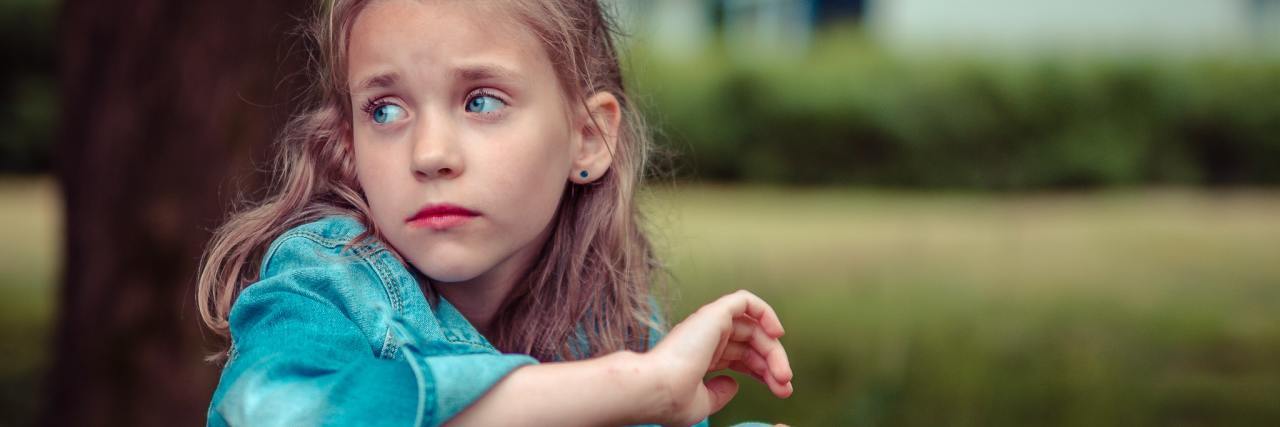The Cinderella Phenomenon: Why Some Children Are Targeted for Abuse and Not Their Siblings
Editor's Note
If you’ve experienced domestic violence or emotional abuse, the following post could be potentially triggering.
You can contact The National Domestic Violence Hotline online by selecting “chat now” or calling 1-800-799-7233.
You can also contact the Crisis Text Line by texting “START” to 741741.
This post is a version of an excerpt from my book, “Crazy Was All I Ever Knew: The Impact of Maternal Mental Illness on Kids.” I have used a pseudonym to protect the privacy of family members.
As a child, I lived in dread that something would set my mother off and she’d fly into a violent rage, unleashing a torrent of physical abuse. There never was any reason for the abuse. There didn’t have to be. Something would invariably infuriate my mother.
I don’t know why my mother singled me out — why she only hit me and not my siblings.
Research shows there can be a link between parental mental illness and abuse. As noted by the National Scientific Council on the Developing Child, “Through reduced caregiving capacities, the co-occurrence of child neglect or abuse, and exposure to other sources of fear and stress, parental mental health conditions [can] have direct consequences for the health and well-being of their children [children of parents with mental illness].” In my case, my mother was mentally ill.
Sometimes, abusive parents are indiscriminate in their violence, but sometimes not. Researchers say it’s not uncommon for an abusive parent to single out one child as the target of physical violence. This has been called: the “Cinderella Phenomenon.” Another term is “target-child selection.”
I never wore glass slippers, but I fit the definition of a Cinderella. In my case, it wasn’t an evil stepmother heaping abuse on me; it was my biological mother. And I wasn’t living in a fairy tale world. No fairy godmother was going to say “bibbidi-bobbidi-boo” and magically transform my life. No prince would whisk me away.
The rage my mother directed at me was inescapably real.
Why would a parent single out one child for abuse? Byron Egeland, an expert in child maltreatment at the Institute of Child Development, University of Minnesota, told me: “Reasons for the abuse are highly varied, and there is no consistent pattern across maltreatment cases.”
Accumulated research shows the Cinderella Phenomenon often involves the redirection of anger that an abusive parent feels toward someone else — perhaps an absent spouse or former partner. The targeted child may remind the parent of a trauma they experienced, such as rape, or as Egeland noted, their own abuse. “The abuser is likely to have a history of abuse,” he says.
Sometimes, parents target a child for abuse because the child is hyperactive, has a disability, or displays personality traits the parent doesn’t like.
More likely than not, though, Egeland says, there is no logical explanation.
While all siblings in my family were subjected to psychological abuse, I was the only one who experienced physical abuse at the hands of my mother. I’ve often thought that my mother targeted her rage against me because I looked like her. I remember examining a picture of my mother when she was about 8. It was as if I was staring back at myself at the same age. But what disturbed her about the mirror image, I will never know.
There have been many studies on the characteristics of abusive parents. Studies show they tend to have: low self-esteem, poor impulse control, low frustration tolerance, inappropriate expression of anger, impaired parenting skills, depression and other mental health problems, and as mentioned previously, a history of being abused.
In my mother’s case, I could put a checkmark next to virtually all of these descriptors except a history of abuse. I know nothing about her childhood.
My book, “Crazy Was All I Ever Knew: The Impact of Maternal Mental Illness on Kids,” is available on Amazon. You can reach me at www.Alicekenny.com.
Byron Egeland is an Irving B. Harris Professor Emeritus at the Institute of Child Development, University of Minnesota. All quotes come from an email to the author, June 6, 2019.
Photo by Janko Ferlič on Unsplash

